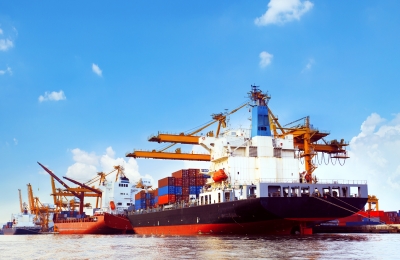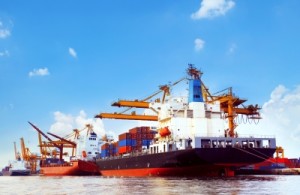

Asia-Pacific Economic Cooperation (APEC) ministers wish to see more progress made on several programs on cross-border trade facilitation in the region, including the Authorized Economic Operator (AEO) scheme, the Single Window, and electronic port management.
In their 2015 Joint Ministerial Statement signed on November 17, the APEC ministers said they “look forward to the progress of work on the Single Window, Advanced Risk Management, Passenger Name Record, and Authorized Economic Operators.
“We also look forward to the completion of APEC Best Practices on Authorized Economic Operators in 2016 which will help develop trade facilitation frameworks that allow efficient transport of legitimate cargo processing, in line with World Customs Organization instruments, tools and standards, and will widen the network of AEO mutual recognition arrangements,” the joint statement said.
The leaders are also encouraging more member economies to join the Asia-Pacific Model E-Port Network (APMEN), which promotes the use of information technology in port management to improve connectivity and the business environment.
“We endorse the Strategic Framework and the Working Mechanism of APMEN and encourage more economies to join the APMEN,” the joint statement said.
“As we harness ICT for cross-border trade, we instruct officials to look into the development of the e-port and single window systems, taking into consideration ICT technology accessibility, economies’ levels of development, and the ongoing work in APEC,” the statement added.
The APMEN was created during the 22nd APEC Economic Leaders’ Meeting (AELM) in Beijing, China last year. Recognizing the importance of supply chain connectivity through e-port development and collaboration efforts, APEC ministers endorsed the APEC Initiative on Asia-Pacific Model E-port Network and the Terms of Reference of the APMEN, serving as a brain trust to promote e-port development and cooperation under the principles of mutual benefits and respect.
Nominated as the first batch of APEC Model E-ports were Australia, Canada, China, Hong Kong, Mexico, Peru, Chinese Taipei, and Vietnam. In August this year, the APMEN Operational Center was launched in Shanghai, China. In its 2015 progress report on the 2014 AELM, the China Ministry of Foreign Affairs said that to date, 11 ports from nine economies have joined APMEN while seven other economies are participating as observers.
WCO welcomes APEC statement
Meanwhile, the World Customs Organization (WCO) welcomed the 2015 joint statement and the further development of APEC projects.
On its website, WCO secretary general Kunio Mikuriya said the organization “will continue to contribute to APEC actions by providing expertise at relevant APEC Committees and sending experts to APEC projects on a regular basis.”
The WCO Mercator Programme will also support APEC economies in their efforts on Customs trade facilitation and travel and trade security.
According to the WCO website, the Mercator Programme is aimed at assisting governments worldwide to implement trade facilitation measures expeditiously and in a harmonized manner by using core WCO instruments and tools such as the Revised Kyoto Convention.
The Mercator Programme also ensures connectivity at borders and along international trade supply chains in order to provide a consolidated platform for advancing the smooth flow of goods being traded around the world.
Mikuriya also appreciated that the APEC joint statement linked up with the concept of digital customs, which is the key theme of the international Customs community in 2016, and the ministers’ instruction to look into the development of e-port and single window systems, taking into consideration ICT technology accessibility.
“Customs plays a vital role in security by protecting borders, securing supply chains, curbing illegal trade, strengthening passenger controls and identifying terrorist financing that can profit from illegal activities. The WCO would therefore also continue to actively support and provide expertise to APEC projects on counter-terrorism,” Mikuriya said. – Roumina Pablo
Image courtesy of khunaspix at FreeDigitalPhotos.net




